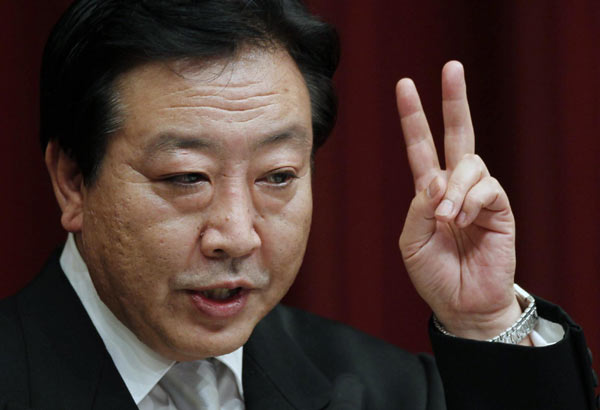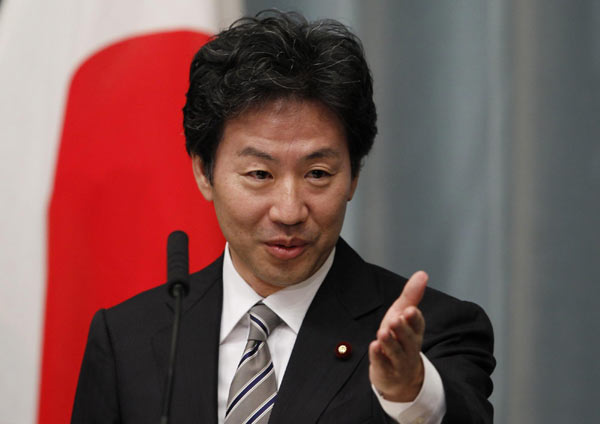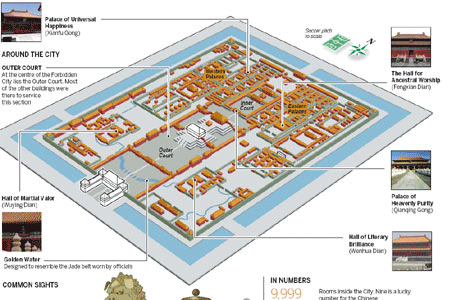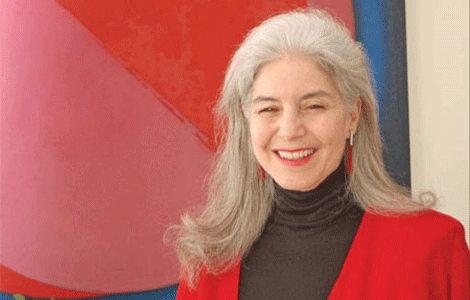Asia Pacific
Japan's PM picks cabinet, vows pragmatic reforms
Updated: 2011-09-03 14:00
(Agencies)
 |
|
Japan's new Prime Minister Yoshihiko Noda speaks at a news conference at his official residence in Tokyo, Sept 2, 2011. [Photo/Agencies] |
TOKYO - Japan's new Prime Minister Yoshihiko Noda unveiled on Friday a government that will face the task of engineering an economic recovery without blowing a hole in its stretched finances, promising swift fiscal reforms but with an eye on growth.
Noda, 54, the latest of Japan's revolving-door leaders, also said he would seek to balance energy needs with public concerns about safety after a March earthquake and tsunami triggered the world's worst nuclear crisis in 25 years.
Noda's cabinet appointments from various groups in his own party revealed a similar desire to find the middle ground, raising doubts whether the new government caught between conflicting demands can achieve more than its short-lived predecessors.
Noda's government, Japan's sixth in five years, must find funds to rebuild from the March disasters while trying to tame a surging yen, which has gained 5 percent against the dollar in the past two months.
"We can lose no time in reforming public finances. But I'm not putting fiscal reform on top of everything else," Noda told a news conference after being formally appointed. "Achieving a good balance between fiscal reform and economic growth is our top priority."
 |
|
Japan's newly-appointed Finance Minister Jun Azumi attends at a news conference at the Prime Minister Yoshihiko Noda's official residence in Tokyo, Sept 2, 2011. [Photo/Agencies] |
In a sign he plans to call the economic policy shots himself, Noda picked a relative lightweight lawmaker for the finance minister post.
In fact, in their first news briefings both Noda, who served as finance minister under Prime Minister Naoto Kan, and his successor in the job, 49-year-old Jun Azumi, struck strikingly similar notes on the currency and fiscal policy.
"The economy is recovering from the effects of the earthquake, but close attention should be paid to downside risks to the economy such as from slowdown in the West and the yen's rise," Azumi said, echoing Noda's remarks.
E-paper

Unveiling hidden treasures
The Forbidden City, after the Great Wall, is the most recognized tourist site in China.
Short and sweet
Game for growth
Character reference
Specials

China at her fingertips
Veteran US-China relations expert says bilateral ties have withstood the test of time

The myth buster
An outsider's look at china's leaders is updated and expanded

China in vogue
How Country captured the fascination of the world's most powerful fashion player
